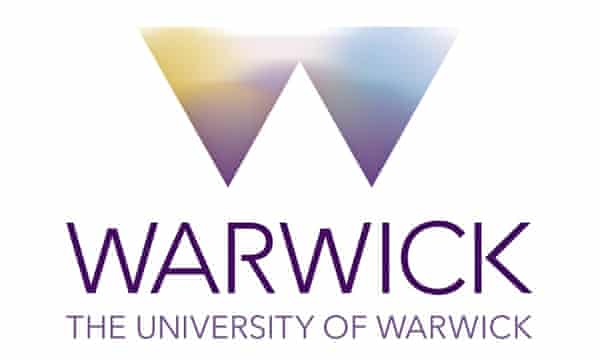University of Warwick: Rare and complex syndromes in children to be investigated by new research network
Pioneering collaborative research network, the Cerebra Network for Neurodevelopmental Disorders, to be launched at a virtual event on Thursday 3 June
A unique academic team led jointly by Dr Hayley Crawford (University of Warwick), Dr Caroline Richards (University of Birmingham), Dr Jo Moss (University of Surrey) and Dr Jane Waite (Aston University) combining expertise from four leading institutions
Will deliver insight into the challenges faced by children with rare genetic syndromes and neurodevelopmental conditions associated with intellectual disability, such as fragile X syndrome, Smith-Magenis syndrome, Tuberous Sclerosis Complex, Prader-Willi syndrome, Down syndrome, and Cornelia de Lange syndrome
Attendance at the launch event can be registered at: https://tinyurl.com/cerebra-network-launch
Cerebra Network logoNew and improved ways of supporting children with rare and complex syndromes are to be investigated by Cerebra’s pioneering collaborative research network – a unique academic team that truly integrates knowledge, expertise and resources across universities in the Midlands and Surrey.
Funded by the charity Cerebra, the Cerebra Network continues and expands upon the work of the Cerebra Centre for Neurodevelopmental Disorders and aims to improve the lives of individuals with rare genetic syndromes and other neurodevelopmental conditions associated with intellectual disability and their families. A cornerstone of the Network’s approach is the collaboration between researchers at the four different universities, which can better reflect the multifaceted presentation of children with rare and complex disorders such as fragile X syndrome, Smith-Magenis syndrome, Tuberous Sclerosis Complex, Prader-Willi syndrome, Down syndrome, and Cornelia de Lange syndrome.
Cerebra Network Co-Director Dr Hayley Crawford (University of Warwick) said: “A Network that can work with families and children across a number of characteristics within a single team will yield better, more accurate assessments, evidence and ultimately therefore intervention guidance and solutions for clinicians and families.”
Cerebra Network Co-Director Dr Jo Moss (University of Surrey) said: “The Network is a true collaboration that is integrated from the ground up to deliver a higher impact from its work and its funding than any individual approach could offer.”
Cerebra Network Co-Director Dr Caroline Richards (University of Birmingham) said: “Our aim is to improve the evidence that underpins better assessment and interventions and leads to improved outcomes for these children and their families. This area of research is underrepresented in modern academic circles.”
The Cerebra Network for Neurodevelopmental Disorders will be launched at a public event on Thursday 3 June by academics and clinicians from the University of Warwick (Dr Hayley Crawford), University of Surrey (Dr Jo Moss), University of Birmingham (Dr Caroline Richards) and Aston University (Dr Jane Waite). The virtual event will showcase its upcoming research into the challenges faced by children with rare genetic syndromes associated with intellectual disability in everyday settings, as well as the close work the team does with their families.
To register attendance at the launch event, visit: https://tinyurl.com/cerebra-network-launch
Cerebra Network Co-Director Dr Jane Waite (Aston University) said: “The launch event will be an opportunity to hear about the work that is being conducted by the Network and how this sits in the wider field of intellectual disability research.”
The day will be split into a Family Focus Session from 10am – 12.15pm and a Research Focus Session from 1pm – 3.45pm, both open to members of the public. The Family Focus Session will be of particular interest to parents and carers of people with neurodevelopmental disorders and their families, and will cover the research the network aims to do, family experiences of that research, and question and answer sessions.
The Research Focus Session will focus on the research behind the Network’s three key themes: Autism, Sleep and behaviour, and Mental health. Of particular interest to academics and professionals working with people with neurodevelopmental disorders, it will include talks by researchers and clinicians in the field with the opportunity for a live Q&A session.
Tracy Elliot, Head of Research and Information at Cerebra, said: “We are investing in this collaborative and vibrant network of researchers with the combined aim of improving the lives of individuals with multiple and complex needs. This is an exciting new development in the way we fund research, one we believe will yield impactful and lasting outcomes for families.”

